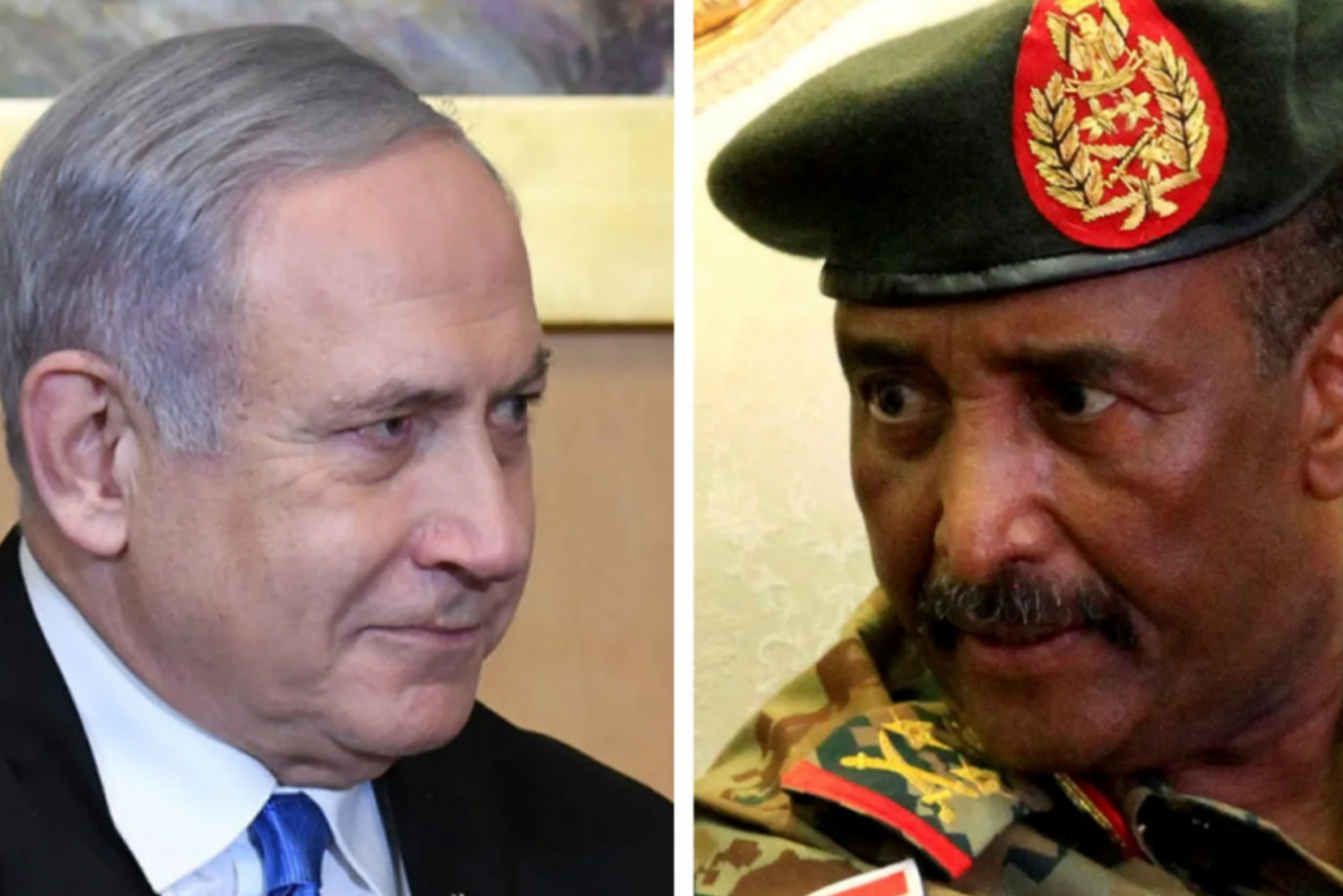Analysis
Sudan normalizes relations with Israel, though it may not have had much choice
Donald Trump announced Friday that Khartoum is the third Arab capital that will start full relations with the Jewish state, leaving Palestinians embittered.

“Today we announce another dramatic breakthrough for peace. Another Arab state joining the circle of peace. This time, it’s normalization between Israel and Sudan,” said Benyamin Netanyahu, commenting on the announcement by Donald Trump of the agreement that puts an end to the state of conflict between Khartoum and Tel Aviv and will start the normalization process between the two countries.
Shortly before the announcement, the Israeli Prime Minister had had a telephone conversation with the Sudanese leaders—Prime Minister Abdalla Hamdok and the head of the Transitional Council, Abdel Fattah al Burhan—and the American President. Everything had been prepared for days—certainly since Wednesday, when a high-profile Israeli delegation went to Khartoum.
Accordingly, Friday morning Trump announced the removal of Sudan from the list of countries that the United States is accusing of “sponsoring terrorism.” At that point, it was understood that the announcement of the third normalization, after those between Israel and the United Arab Emirates and Bahrain, was a matter of hours.
Sudan has agreed to join the Abraham Agreement, signed on September 15 at the White House. It is difficult to evaluate just to what extent the new Sudanese leaders who removed Omar al-Bashir were happy to reach common ground with their Israeli interlocutors. It is certainly the case that the scenario has changed, and not a little, compared to 18 years ago, when the Arab world was united in supporting the principle of “peace in exchange for the land,” i.e. that normalization with Israel would only be achieved in exchange for the withdrawal from the Arab and Palestinian territories occupied by the Jewish state in 1967. But the impression is that Sudan, with a starving population, has been pushed to enter the agreement by Trump’s diktat more than anything else: there would be no removal from the list of sponsors of terrorism, and no international aid, without a normalization of relations with Tel Aviv.
In any case, the least-celebrated of the three agreements is actually the most significant. Khartoum has been one of the most pro-Palestinian capital cities, and in the past has welcomed thousands of PLO fighters. “Sudan’s joining others who normalized ties with the state of the Israeli occupation represents a new stab in the back of the Palestinian people [but] will not shake the Palestinians’ faith in their cause and in continuing their struggle,” commented Wasel Abu Yusef of the PLO Executive Committee.
Netanyahu exaggerated, but only up to a point, when he spoke of a dramatic breakthrough. It’s true that Sudan has been engaged in a long-distance war with Israel. Khartoum has supported the Hamas Islamic movement and has maintained a military and political alliance with Iran and the Hezbollah Lebanese Shiite movement. Between 2008 and 2014, the Israeli air force raided the African country several times. And on Friday, the Israeli Prime Minister recalled that it was in Khartoum that the “three Nos” of the Arab League were announced back in 1967: “No peace with Israel, no recognition of Israel, no negotiations with Israel.”
Five decades later, Israel has officially arrived in Khartoum and Port Sudan with its security and intelligence apparatus.
Originally published at https://ilmanifesto.it/al-via-la-normalizzazione-tra-sudan-e-israele/ on 2020-10-24
